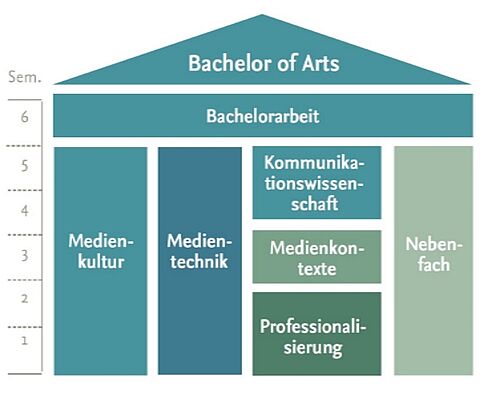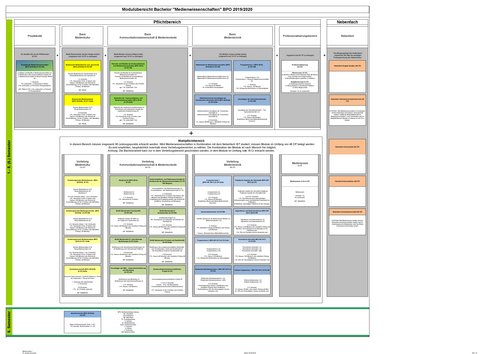On this page you will find everything you need to know about studying the two-subject Bachelor's degree in Media Studies.
The two-subject Bachelor's degree in Media Studies teaches core skills in media studies and supplements these with broad basic knowledge in all media-related areas. You can continue to pursue your own specialisation, which you develop during the course of your studies by choosing a minor subject, in one of the subsequent Master's courses or in your professional life. An internship is integrated into the degree programme.
Three core areas characterise your studies:
In addition, there is a professionalisation area in which media practice courses (introduction to video and digital editing practice, sound recording, image design, journalism and public relations/PR etc.) round off the course in a practical way.

The interdisciplinary Bachelor's degree programme in Media Studies is a cooperation between Technische Universität Braunschweig (TU Braunschweig) and Hochschule für Bildende Künste Braunschweig (HBK Braunschweig) . The Braunschweig model combines approaches from communication science, communications technology and cultural studies to create a study profile that is unique in Germany. In this way, students gain insights into the aesthetics, reception, impact, production, technology, structure and function of media on the one hand and practical media skills on the other.
The major in Media Studies is divided into a compulsory area, consisting of basic modules and professionalisation, and a compulsory elective area. The degree programme concludes with the Bachelor's thesis.
In the compulsory area, you will attend modules from the fields of media culture (18 CP), communication science (18 CP) and media technology (19 CP) in addition to propaedeutics (6 CP). In the professionalisation area, 24 CP must be completed.
In the specialisation area (38 CP), you can choose from the specialisations Media Culture, Communication Science & Media Contexts and the specialisation Media Technology. You also have the option of taking 3 to 6 CP in the area of media practice. It is recommended to choose modules mainly from one specialisation area. The Bachelor's thesis (12 CP) can only be written in the specialisation area in which modules totalling ≥ 18 CP are completed.
You can download an overview of the structure of the degree programme here. Please make sure you have the version that applies to you.

The timetable, the course catalog and the handbook for the current semester can be found on the german version of the website.
Timetables, course catalogs and module handbooks from previous semesters can be found in the archive.
The current course catalog and module handbook are essential for understanding the timetables. The course catalog provides information about the courses offered in the respective semester. The module handbook provides information on the allocation of courses to the modules and to the module headings.
Please refer to the BPO of the minor subject to find out which modules you have to study in the minor subject.
The minor subjects Visual Communication (HBK) and Art Studies (HBK) can be found in the online course catalog of the HBK.
Media Technology in the Bachelor's degree programme in Media Studies
During your studies, you have various options for a stay abroad. Depending on which subject area of your degree programme you want to cover during your semester abroad, you can choose from various TU Braunschweig partner universities.
You can find an overview of existing TU Braunschweig exchange programs on the pages of the International House. The Erasmus+ program is the most widespread.
It is best to discuss the right time for a stay abroad with the subject coordinator. You benefit from the following advantages during an Erasmus+ stay:
As a Media Studies student, you also have the opportunity to go abroad via your minor subject or to take advantage of the HBKs exchange opportunities.
Consultation hours:
by arrangement
Hochschule für Bildende Künste
Johannes-Selenka-Platz 1
38118 Braunschweig